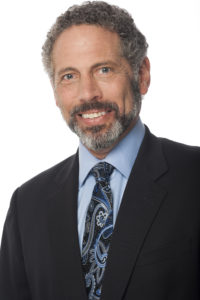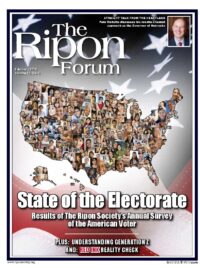
Earmarks are corrupt, unfair, and wasteful. The ongoing effort to revive them should be squelched, and they should be permanently banned.
On January 23, 2018, Sen. Jeff Flake (R-AZ), along with a bipartisan group of 12 senators, introduced a bill to achieve that goal. Called the Earmark Elimination Act (S. 2330), the legislation would permanently extend the earmark moratorium that both the House and Senate adopted following the 2010 elections.
As some may recall, this was the election that returned the majority on Capitol Hill to congressional Republicans. Four years earlier, the GOP had been booted out of power after adding a record $29 billion in earmarks to the FY 2006 appropriations bills, and after approving an FY 2005 highway bill that included $24 billion in earmarks — including the infamous Bridge to Nowhere in Alaska.
The moratorium that was ultimately agreed to after the 2010 election was extended by Senate Republicans in a unanimous vote last year. Unfortunately, their counterparts on the other side of the Capitol did not follow suit. In fact, not only did House Republicans fail to extend the moratorium, but Speaker Paul Ryan (R-WI) was forced to fight off an attempt to restore them just nine days after the “drain the swamp” election in November of 2016. The Speaker asked members to hold off on a vote on the issue.
Earmarks are corrupt, unfair, and wasteful. The ongoing effort to revive them should be squelched.
As it turned out, nothing took place until the House Rules Committee held hearings on the issue on January 17 and January 18 of this year. The members of Congress clamoring for a return of earmarks at the January 17th hearing made the usual claims that members know better than bureaucrats where money should be spent in their districts and that the legislative branch is giving up too much power to the executive branch in this regard. To the two-thirds of House Republicans who were not in office before the moratorium was adopted in 2011, these no doubt sound like reasonable arguments.
But these members did not observe first-hand the members of Congress, staff members, and lobbyists who were thrown in jail over a decade ago because of earmarks. These members may also be unaware of the fact that in the 111th Congress — when the names of members who requested earmarks were included in the appropriations bills — 81 appropriators secured 51% of the earmarks. Put another way, only 15% of the Congress walked away with over half of the funds involved. In the 2005 highway bill alone, House Transportation and Infrastructure Committee Chairman Don Young (R-AK) got $1 billion in earmarks (including the Bridge to Nowhere). In other words, the Chairman received 760 times more than the average of $13 million that the typical rank and file member received.
Today, some argue that earmarks are needed to help pass legislation. But this argument is easily debunked. Last year alone, Congress passed the most comprehensive tax reform since 1986, including the repeal of the individual mandate under Obamacare. The House also managed to pass all 12 appropriations bills.
In the 111th Congress — when the names of members who requested earmarks were included in the appropriations bills — 81 appropriators secured 51% of the earmarks.
Earmark proponents claim that earmarks do not add to overall federal spending, and that members of Congress are not more likely to vote in favor of higher spending with earmarks. But a Department of Transportation Office of Inspector General report on earmarks from September 7, 2007 cited three Federal Highway Administration programs in which earmarks exceeded the authorized spending levels, resulting in across-the-board cuts ranging from 3.4% to 16.4%. The report also cited several programs that were entirely earmarked, which means they were not subject to local, state, or federal review and analysis under the 2005 highway bill and other statutory authority.
Earmark proponents throw around Congress’s Article I power as the underlying basis for such expenditures. While Congress may be able to spend money in almost any way it pleases, the answer to members’ complaints about their supposed inability to control executive branch spending is not earmarks. It is greater oversight and renewed efforts to authorize programs.
In that regard, members should start with the $310 billion in unauthorized programs that have been identified by the Congressional Budget Office (CBO). The Unauthorized Spending Accountability Act (H.R. 2714) would create a three-year schedule for the review and reauthorization of these programs. In the first year after the expiration of an authorization, the program’s budget would be reduced by 10%, followed by reductions of 15% in each of the following two years, after which the program would be terminated. The legislation deserves prompt consideration.
Earmarks are a lazy and unnecessary “alternative” to the hard work required to enhance oversight and increase the number of authorized programs, which would increase the efficiency and effectiveness of federal spending. A permanent ban on earmarks would be another incentive for members to properly utilize their Article I power over spending.
Tom Schatz serves as President of Citizens Against Government Waste.




